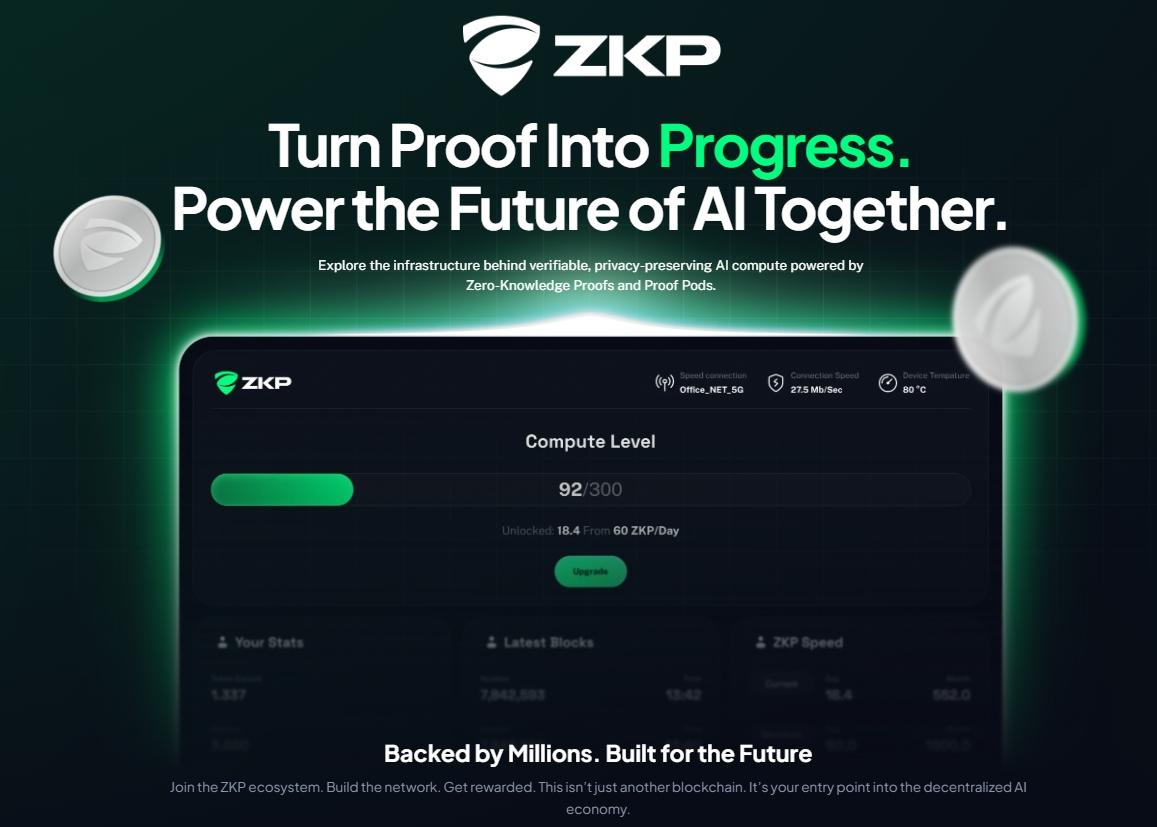Privacy Redefined: The Power of Zero-Knowledge Proofs

In today’s interconnected world, our personal and professional data is constantly at risk. From online banking and e-commerce to healthcare records and government databases, sensitive information is shared daily. Traditional verification systems often require revealing private data to prove identity, qualifications, or ownership. This creates a significant vulnerability: the more information is shared, the greater the risk of breaches or misuse.
Zero knowledge proof (ZKP) is a revolutionary cryptographic method that allows one party to prove the validity of information without revealing the information itself. By decoupling verification from disclosure, ZKPs transform how organizations, institutions, and individuals approach privacy and trust in the digital age.
How Zero-Knowledge Proofs Work?
The Core Principle
At its simplest, a zero-knowledge proof allows a prover to convince a verifier that a claim is true without revealing any additional details. For instance, a user could prove they are over 18 without providing their birthdate, or a company could confirm financial solvency without disclosing exact numbers.
This works through advanced mathematical algorithms that generate proofs verifiable by third parties. These proofs ensure that the claim is correct while maintaining complete confidentiality of the underlying data.
Types of ZKPs
-
Interactive ZKPs: Require back-and-forth communication between prover and verifier.
-
Non-Interactive ZKPs: Use cryptographic commitments to provide a single verifiable proof, suitable for large-scale systems like digital identity verification or financial auditing.
By implementing ZKPs, digital services can maintain trust without sacrificing privacy.
Applications Beyond Blockchain
While often associated with cryptocurrencies, zero-knowledge proofs have far-reaching potential in multiple sectors:
1. Digital Identity
In traditional identity verification systems, individuals must share documents or personal details to access services. ZKPs allow users to confirm attributes like age, citizenship, or membership status without revealing personal data.
-
Secure Login: Users authenticate without transmitting passwords, reducing phishing risks.
-
Age Verification: Online platforms verify users meet age requirements without storing sensitive birth information.
-
Membership Validation: Organizations confirm credentials without accessing full member profiles.
This approach empowers users to maintain control over their personal information.
2. Secure Financial Transactions
Financial institutions handle sensitive data daily, and breaches can have catastrophic consequences. ZKPs enable:
-
Confidential Payments: Transaction details such as amount and parties involved remain hidden while validation occurs.
-
Regulatory Compliance: Banks can demonstrate compliance with anti-money laundering (AML) rules without revealing customer identities.
-
Proof of Solvency: Institutions can prove liquidity or reserve requirements without disclosing full financial statements.
By enabling secure verification without data exposure, ZKPs enhance trust in financial systems.
3. Healthcare Privacy
Healthcare providers store vast amounts of sensitive patient information. ZKPs allow:
-
Secure Research Collaboration: Hospitals and research institutions can share insights or train AI models on encrypted data without exposing patient records.
-
Confidential Patient Verification: Patients can prove eligibility for services or insurance coverage without sharing their entire medical history.
This improves patient privacy while allowing innovation and collaboration in the medical field.
4. Voting and Governance
ZKPs can transform digital voting systems by ensuring election integrity while preserving voter anonymity:
-
Voter Authentication: Citizens prove eligibility without revealing personal identity.
-
Secure Ballots: Votes are verified without disclosing individual choices.
-
Transparent Auditing: Election outcomes are verifiable without compromising privacy.
By combining privacy with verifiability, ZKPs create trust in democratic processes.
Advantages of Zero-Knowledge Proofs
-
Enhanced Privacy: Verification occurs without exposing sensitive data.
-
Reduced Risk of Breaches: Less data is stored or transmitted, lowering vulnerability.
-
Regulatory Compliance: Organizations can meet legal requirements without sharing unnecessary information.
-
User Empowerment: Individuals control what information is revealed and to whom.
-
Secure Collaboration: Multiple parties can verify and share results without accessing confidential details.
Challenges to Implementation
Despite their benefits, ZKPs face obstacles:
-
Computational Intensity: Proof generation can be resource-heavy for complex systems.
-
Integration Complexity: Existing systems may require significant redesign to adopt ZKP protocols.
-
Interoperability: Standardization across platforms is still evolving.
-
Education and Awareness: Organizations need understanding and training to implement ZKPs effectively.
Ongoing research and technological improvements are addressing these challenges, making ZKPs increasingly practical for mainstream applications.
The Future of Privacy with Zero-Knowledge Proofs
The potential of ZKPs extends far beyond any single sector. Future developments may include:
-
Global Digital Identity Systems: One cryptographic proof could verify identity across multiple platforms while keeping personal data private.
-
Privacy-Preserving IoT: Connected devices could share operational data without revealing sensitive information about users.
-
AI Model Verification: ZKPs can ensure AI predictions and decisions are accurate without exposing underlying datasets.
-
Decentralized Privacy Networks: Communities and organizations could securely collaborate without centralized control of data.
As more industries recognize the value of privacy-preserving verification, ZKPs are poised to become foundational in secure digital infrastructure.
Conclusion
Zero-knowledge proofs represent a transformative step in digital security and privacy. By allowing verification without disclosure, ZKPs empower individuals, organizations, and governments to maintain trust while safeguarding sensitive information. From identity authentication and financial systems to healthcare, voting, and AI verification, this technology offers a future where privacy and security coexist seamlessly.
- AI
- Vitamins
- Health
- Admin/office jobs
- News
- Art
- Causes
- Crafts
- Dance
- Drinks
- Film
- Fitness
- Food
- Games
- Gardening
- Health
- Home
- Literature
- Music
- Networking
- Other
- Party
- Religion
- Shopping
- Sports
- Theater
- Wellness


